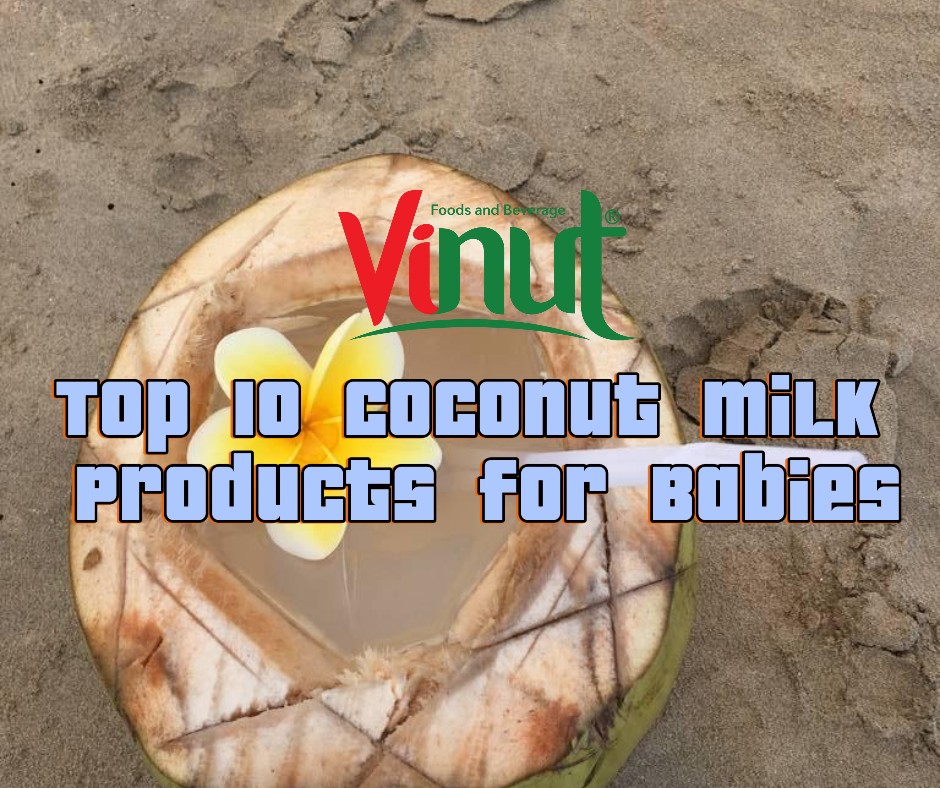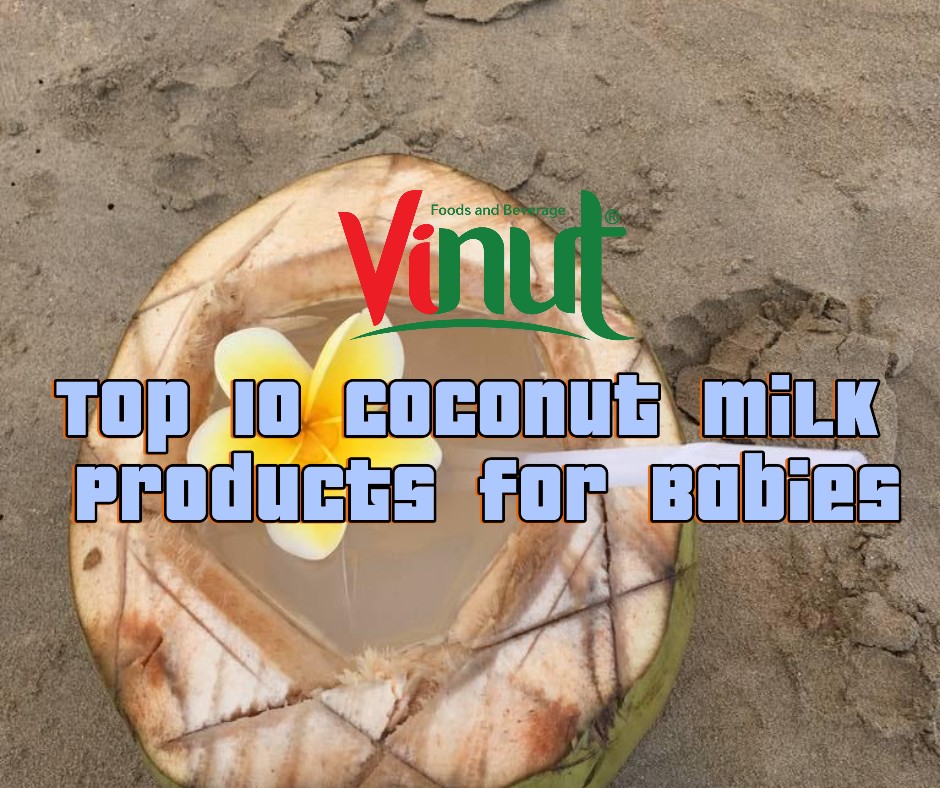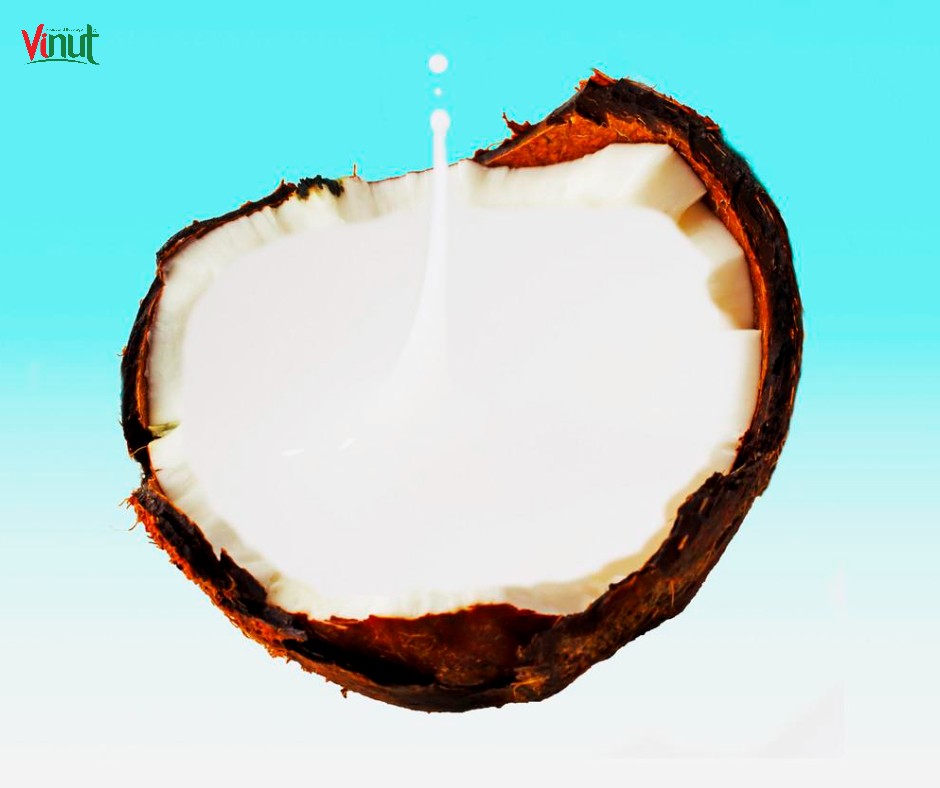
News
Top 10 Coconut Milk Products for Babies: A Parent’s Guide

Introduction
Introducing solid foods to babies is a significant milestone in their development. Coconut milk is a nutritious option that can be incorporated into a baby’s diet, providing essential nutrients and promoting healthy growth. In Cojo guide, we’ll explore the top 10 coconut milk products suitable for babies.

Benefits of Coconut Milk for Babies
1. Nutrient-Rich
Coconut milk is rich in vitamins, minerals, and healthy fats, making it a valuable addition to a baby’s diet to support overall growth and development.
2. Dairy-Free Alternative
For babies with lactose intolerance or dairy allergies, coconut milk serves as an excellent alternative to cow’s milk, providing essential nutrients without triggering adverse reactions.
3. Supports Brain Development
The medium-chain triglycerides (MCTs) found in coconut milk are beneficial for brain health and cognitive development in infants and young children.

Top 10 Coconut Milk Products for Babies
1. Organic Coconut Milk
Organic coconut milk products are free from synthetic pesticides and additives, ensuring the highest quality and purity for your baby’s diet.
2. Homemade Coconut Milk
Freshly made coconut milk at home allows you to control the ingredients and avoid added sugars or preservatives, making it a wholesome option for babies.
3. Unsweetened Coconut Milk Beverage
Opt for unsweetened coconut milk beverages specifically formulated for infants, free from added sugars and artificial flavors, and fortified with essential nutrients like calcium and vitamin D.

4. Coconut Milk Yogurt
Coconut milk yogurt is a dairy-free alternative to traditional yogurt, providing probiotics and healthy fats beneficial for digestive health and immune function in babies.
5. Coconut Milk Infant Formula
Some infant formula brands offer coconut milk-based formulas designed to meet the nutritional needs of babies who cannot tolerate cow’s milk or soy-based formulas.
6. Coconut Milk Smoothies
Blend fresh coconut milk with baby-friendly fruits like banana, mango, or avocado to create nutritious and flavorful smoothies suitable for babies six months and older.
7. Coconut Milk Porridge
Combine coconut milk with cooked grains like rice or oatmeal to create a creamy and nourishing porridge ideal for introducing solid foods to your baby’s diet.
8. Coconut Milk Popsicles
During hot weather, freeze coconut milk into popsicle molds for a refreshing and hydrating treat that also provides essential nutrients for your baby.
9. Coconut Milk Pancakes
Prepare pancakes using coconut milk as a dairy-free alternative to cow’s milk, incorporating mashed fruits or vegetables for added flavor and nutrition.
10. Coconut Milk Rice Pudding
Cook rice in coconut milk and sweeten with natural fruit purees or a touch of maple syrup to create a creamy and satisfying dessert or snack for your baby.

Precautions and Recommendations
1. Allergy Testing
Before introducing coconut milk to your baby, perform an allergy test by offering a small amount and monitoring for any adverse reactions such as rash, vomiting, or diarrhea.
2. Consultation with Pediatrician
Consult with your pediatrician before introducing coconut milk or any new food to your baby’s diet, especially if your baby has underlying health conditions or dietary restrictions.
3. Age-Appropriate Portions
Ensure coconut milk products are introduced gradually and in age-appropriate portions, following your pediatrician’s recommendations based on your baby’s individual needs and development.
FAQs (Frequently Asked Questions)
Q: At what age can babies start consuming coconut milk? A: Coconut milk can be introduced to babies as early as six months of age, following the recommendations of pediatricians and dietitians.
Q: Is coconut milk safe for babies with cow’s milk allergies? A: Yes, coconut milk is a dairy-free alternative suitable for babies with cow’s milk allergies or lactose intolerance.
Q: Can I use coconut milk as a breastfeeding supplement for my baby? A: While coconut milk can be included as part of a balanced diet, breast milk or infant formula should remain the primary sources of nutrition for babies under 12 months of age.
Q: Are there any risks associated with giving coconut milk to babies? A: In rare cases, babies may develop an allergic reaction to coconut milk. It’s essential to monitor for signs of allergy and consult with a healthcare professional if any concerns arise.
Q: How should coconut milk be stored for baby food preparation? A: Store coconut milk products in a cool, dry place or in the refrigerator after opening to maintain freshness and prevent spoilage.
Conclusion
In conclusion, coconut milk offers a nutritious and versatile option for introducing solids to your baby’s diet. By choosing high-quality coconut milk products and following age-appropriate guidelines, you can provide your little one with essential nutrients and support their healthy growth and development.
